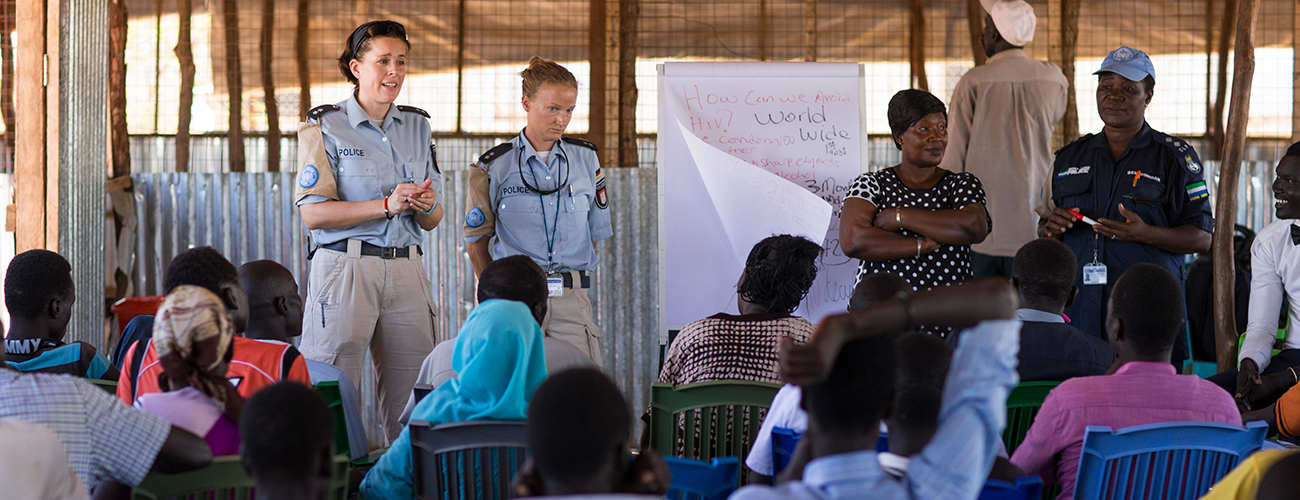Members of the UN police’s Gender, Child and Vulnerable Persons Protection team with the UN Mission in South Sudan (UNMISS) provide training on combating sexual and gender-based violence to residents of a protection of civilians site in Juba, South Sudan, on December 5, 2016. (UN Photo/JC McIlwaine)
While all UN multidimensional peacekeeping operations are mandated to prevent and respond to conflict-related sexual violence (CRSV), the missions in the Democratic Republic of the Congo (DRC) and South Sudan, as well as in the Central African Republic, are also mandated to protect civilians from sexual and gender-based violence (SGBV). While SGBV is often used and understood interchangeably with CRSV, SGBV is broader in scope, as it encompasses nonsexual forms of gender-based violence and need not be connected to armed conflict.
This report examines how missions are implementing their mandates to protect civilians from SGBV, including CRSV, and assesses good practices, gaps, and opportunities for improvement. The report draws on lessons learned from the UN missions in South Sudan (UNMISS) and the DRC (MONUSCO). It considers how the complexities of preventing and responding to SGBV necessitate a whole-of-mission approach to the protection of civilians (POC) that encompasses not only physical protection from violence but also activities that address cultural norms related to gender, strengthen the rule of law, and enhance women’s participation. This report thus considers a range of protection activities carried out by missions, as well as structures and processes that promote the effective integration of gender into mission planning and activities.
The paper concludes with several recommendations for UN peacekeeping missions, the UN Department of Peace Operations (DPO), and member states on the Security Council to strengthen work on SGBV:
- Provide clear guidance on what it means to protect civilians from SGBV as part of a peacekeeping mandate;
- Systematically and meaningfully integrate gender advisers and women’s protection advisers into POC planning at the strategic and operational levels;
- Include gender-sensitive indicators in monitoring and reporting systems and prioritize the gathering of sex-disaggregated data;
- Take a holistic approach to protecting civilians from violence, recognizing the risks of armed responses and prioritizing partnerships; and
- Continue to combat impunity and engage with governments and armed groups to promote accountability.








